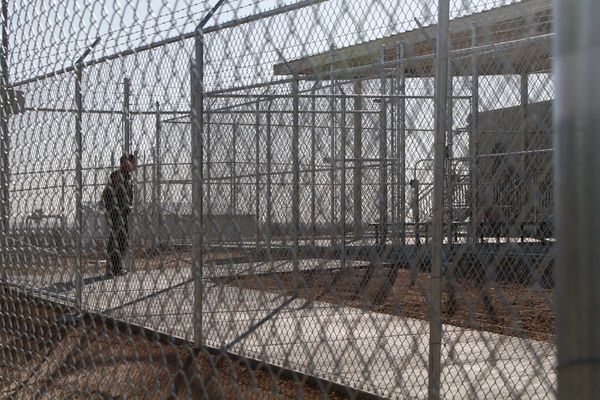
Justice David Mossop of the ACT Supreme Court brought proceedings against whistleblower Bernard Collaery to an end last Friday, following Attorney-General Mark Dreyfus’ correct and welcome no-billing of the case, but some unfinished business remains. Large volumes of it.
As a result of the prosecution — and attorneys-general Christian Porter’s and Michaelia Cash’s determination to try to prosecute Collaery in secret, use secret evidence against him, deny him the chance to defend himself, and otherwise delay and drag out a vexatious prosecution — a large volume of secret material has been compiled dealing with the conduct of the Howard government and the Australian Secret Intelligence Service (ASIS) in bugging the Timor-Leste cabinet.
This was all submitted by the Commonwealth to justify its attempt to conduct the prosecution in as much secrecy as possible. This material could now be used to expose the perpetrators of both the original bugging and its subsequent cover-up — the likes of John Howard, Alexander Downer, their advisers and senior officials of the time.
Now the Attorney-General’s Department (AGD) — which was responsible for the relentless assault on Collaery, quite separate from the actual prosecution by the Commonwealth Director of Public Prosecutions, which never properly commenced — wants that material back.
Perry Herzfeld SC, for the attorney-general, told Mossop last Friday that “there is a range of classified material which is currently being stored by the court … our preference is we should retrieve it from the court”.
Mossop seems inclined to return the material to the AGD, describing the “practicalities” of storing the material as “unattractive”.
Collaery’s team wants the material kept intact for the time being. At the very least, there’s the issue of Collaery’s costs to be resolved. There also remains the separate issue of why Witness K should stand convicted and why he still has not had his passport returned.
Beyond the resolution of the vexatious prosecution of Collaery, the material is a significant resource that would provide important material on one of Australia’s worst political scandals, one suggesting deep corruption at the highest levels of politics and the bureaucracy, and revealing how a fossil fuel company wielded influence at the very heart of our foreign policy.
A Commonwealth anti-corruption body, allowed to operate retrospectively, might find the material used against Collaery very interesting in an investigation of Howard government ministers, staffers and bureaucrats. Despite Mossop’s facile complaint about storage, the material must be retained for safekeeping by the ACT Supreme Court.
Mossop himself provided another piece of unfinished business. In May, when he overruled Collaery’s efforts to subpoena key intelligence and national security officials to show that ASIS has acted beyond its powers in bugging the Timor-Leste cabinet, he handed down a spectacularly awful decision effectively removing intelligence agencies from judicial oversight.
Mossop decided that the government-appointed and secret Inspector-General of Intelligence and Security was the only person who could examine whether agencies were acting within their powers.
As former senator Rex Patrick said at the time, “never have I seen a judicial officer suggest the responsibility of judicial oversight be abandoned because a member of the executive has a measure of oversight and can report breaches of the law to the prime minister”.
But Mossop’s rotten decision will remain as precedent unless it is overturned by a superior court, or by legislation, ready to ensnare a future whistleblower who reveals activity by an intelligence agency that is illegal or outside its remit.
While we’re on unfinished business, special mention should be made of shadow attorney-general Julian Leeser, vaulted from the backbench into a senior shadow ministry by the profound dearth of talent in the post-election Liberal Party.
Leeser responded to the no-billing by claiming it was evidence that Labor was soft on national security. “This action sends a dangerous message to those who would seek to do harm to Australia by dealing in government secrets and shows Labor can’t be trusted to manage our national security.”
So the official position of the opposition is that Collaery should still be on trial, preferably in secret, to cover up the embarrassment of John Howard and Alexander Downer. Leeser thus adds his name to the long and grubby list of Coalition figures who have wanted this sordid and shameful affair covered up.
It’s also profoundly offensive for Leeser to suggest that Bernard Collaery and Witness K ever sought to harm Australia’s national security by “dealing in secrets”. It was Howard and Downer and their spies who harmed Australia. Collaery and K are the heroes who helped reveal that. Like Porter and Cash, the L-plate shadow minister hasn’t got a hope in hell of ever serving his country in the way Collaery and K have.







